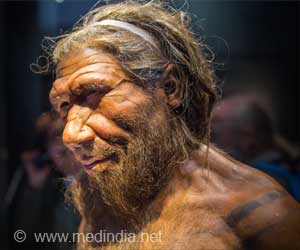In a study on Caucasians and Asians, the researchers found that people of different races recognise faces differently.
People of different races, researchers reveal, differ in the way they recognize others' faces.
PhD student Caroline Blais, of the Universite de Montreal Department of Psychology, conducted two studies on the subject.Previous studies have shown that people collect information by mostly studying the eyes as well as the mouth of a face.
"The problem is that these studies always used Caucasian test subjects," said Blais.
The researchers started questioning the universality of facial recognition after it was shown that Asians study faces in an overall fashion, while Caucasians break down faces into distinct parts.
In the study, Blais used a camera designed to track eye movements to study 14 Caucasian and 14 Asian participants.
As part of the experiment, subjects were shown 112 Caucasian and Asian faces and asked to report if they had seen the face before and to name the dominating trait.
Advertisement
Caucasian and Asian subjects excelled at recognizing someone of their race, yet both had the same level of difficulty in identifying someone of another ethnic group.
In a second experiment, test subjects had to pinpoint an emotion: surprise, fear, disgust or joy.
Asians mostly focused on the eyes and not enough on the mouth, which meant some emotions were wrongly identified.
"Asians had particular problems with negative emotions. They confused fear and surprise as well as disgust and anger. This is because they avoided looking at the mouth which provides a lot of information about these emotions," said Blais.
He said that cultural or biological causes might explain why humans don't read faces in a universal fashion.
The study has been published in Current Biology and the other in PLoS One.
Source-ANI
TAN










